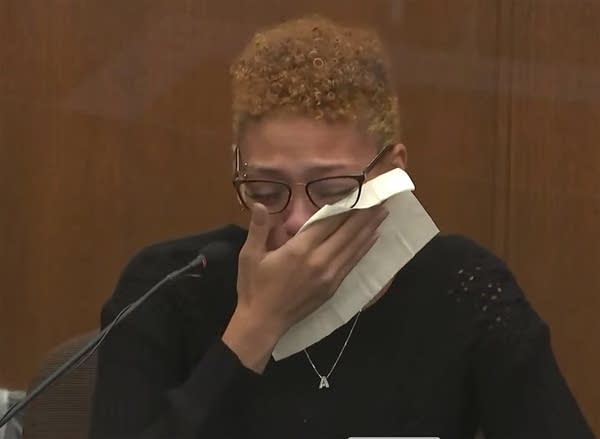Kimberly Potter trial: Wright girlfriend testifies on fatal police stop
Testimony will continue Friday morning at 10 a.m.

Alayna Albrecht-Payton, a passenger in Daunte Wright's car during a traffic stop testifies as Hennepin County Judge Regina Chu presides over court Thursday in the trial of former Brooklyn Center police Officer Kim Potter in Minneapolis.
Court TV, via AP pool
Go Deeper.
Create an account or log in to save stories.
Like this?
Thanks for liking this story! We have added it to a list of your favorite stories.


